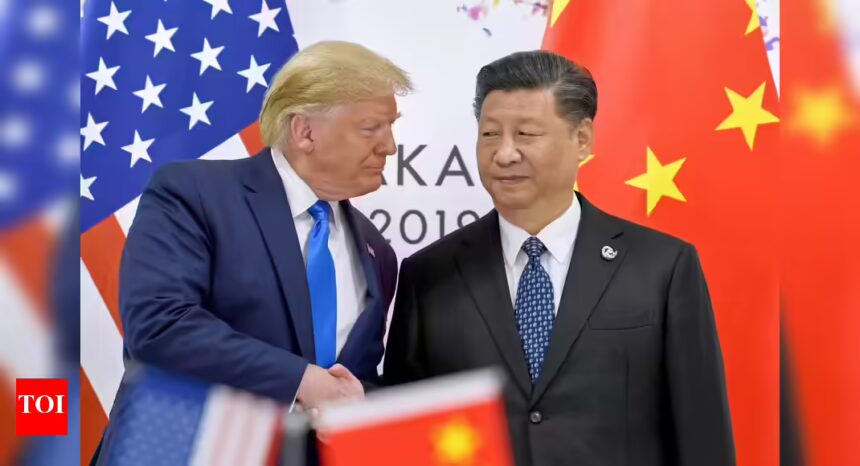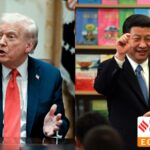The prospect of potential export controls on Boeing aircraft parts has emerged in the wake of China’s recent limitations on rare earth mineral exports, as stated by President Donald Trump during a press conference on Friday. Trump emphasized the reliance of China on Boeing aircraft, illustrating the implications such controls could have on the aviation industry.
Expressing his surprise at China’s decision to impose restrictions, Trump referenced his strong relationship with Chinese President Xi Jinping, implying that such actions were unexpected. “This is not something that I instigated,” Trump commented, explaining that the restrictions were aimed at a global audience rather than targeted specifically at the U.S.
Trump highlighted the importance of Boeing parts in the context of China’s aviation sector, noting that the country operates a significant number of Boeing planes. “We have many things, including a big thing is airplane. They have a lot of Boeing planes, and they need parts, and lots of things like that,” he said, indicating that the potential for export controls could have considerable ramifications.
The relationship between the U.S. and Boeing has been particularly strained since the advent of trade tensions with China. In April, China temporarily halted the delivery of new Boeing jets to its airlines amid ongoing trade disputes, raising concerns about the future of Boeing’s supply chain and market access in the region. Despite these difficulties, Boeing has managed to secure several notable overseas sales, bolstered by Trump’s diplomatic visits.
Currently, Boeing is reportedly negotiating a significant sale that could see China ordering up to 500 jets—the first major transaction since Trump took office. Scott Hamilton, an analyst at Leeham Co., suggested that the financial repercussions for Boeing would be minor if this deal did not materialize, characterizing the impact as “sandpaper on Boeing’s hide.” Notably, China’s share of Boeing’s order book has dwindled dramatically, falling from a quarter to less than 5%.
Chinese airlines currently have at least 222 Boeing jets on order and operate a fleet of 1,855 aircraft, predominantly comprised of the 737 model. However, restrictions on Boeing parts could extend beyond the company itself, potentially impacting CFM International, a joint venture between GE and Safran that provides engines for several Boeing models, including the 737 MAX. In contrast, Airbus has a much smaller Chinese order book of 185 jets and has established manufacturing operations for the A320 in Tianjin.
China is also advancing its domestic aviation industry with the development of the COMAC C919, an aircraft designed to compete directly with the Boeing 737 and Airbus A320. Although orders for the C919 have reached 365, U.S. export restrictions on essential components have hampered its production, resulting in the delivery of only five jets by September, from an anticipated 32. This highlights not only the challenges facing Boeing but also the broader implications of U.S.-China trade relations on the global aerospace market.







